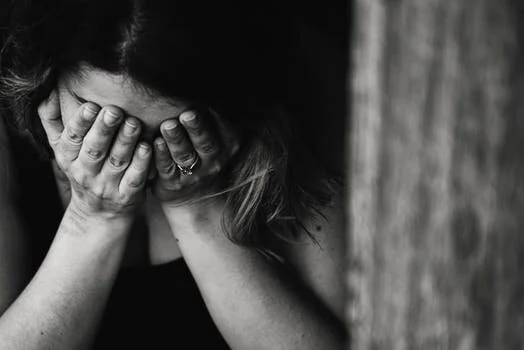AFRICAN AMERICANS & MENTAL HEALTHCARE: Silence, Stigma, Barriers, and Disparities
/Do African Americans shy away from mental healthcare? Or, do we fail to see the underlying issues that keep African Americans from seeking and obtaining the care needed for mental health? We must continue to shed the light on the silence, stigma, barriers, and disparities within the black community.
WHY THE SILENCE?
Being of the African American community, it was very taboo to speak about seeing a therapist when I was growing up. I know firsthand that the silence may come from shame, fear, or avoidance of having a stranger pry into your family’s vulnerabilities and trust. The silence may also be a result of relying solely on one’s faith and spirituality. We must also consider that silence may derive from the unknown, misunderstandings, and not being properly educated about mental illness. According to the National Alliance on Mental Illness (NAMI), “Many African Americans have trouble recognizing the signs and symptoms of mental health conditions, leading to underestimating the effects and impact of mental health conditions” (NAMI, 2019).
WHISPERS OF STIGMA
Stigma is defined as “a mark of disgrace associated with a particular circumstance, quality, or person”. Stigma clouds the reality of mental illness. In the black community, stigma is like a dark cloud that carries bolts of never-ending thunder and lightning. Research by NAMI in 2018 indicated more than 6.8 million African Americans who were diagnosed with mental illness were not able to escape the negativity of stigma within the black community (Baoku, 2018). As a result, this stigma leads to shame, isolation, self-medicating, masking mental health conditions, and avoiding professional help (Baoku, 2018). African Americans from generation to generation were taught to be strong, to overcome, and to stand on their spiritual faith, not realizing whispers of stigma have been a strong-hold against professional care. While resiliency is being birthed and developed in the black community, many are still suffering in silence under the shame of stigma.
BARRIERS UPON BARRIERS & DISPARITIES
Barriers that we cannot ignore are systemic barriers. Systemic barriers can oppress the mind from believing help is possible, can oppress one’s willingness to seek needed help, and can oppress one’s soul from the hope of healing physically, socially, emotionally, and mentally. Multiple barriers lead to disparities. There are multiple types of barriers, such as: historical, economic, social, political, environmental, and psychological, which all put African Americans at a disadvantage (Hackett, 2014). Historical barriers are a result of oppression, racism, colonialism, and segregation, which have a lingering traumatic psychological and emotional effect on the African American community (Hackett, 2014). The historical barriers lead to cultural and medical mistrust between African Americans and healthcare professionals – they may not be able to relate interpersonally to the same types of social and health disparities experienced in the black community, which affects the communication for proper services, correct diagnoses, and treatment (Cuevas, 2013). Also according to NAMI (2019), “African Americans, like many minority communities, are also more likely to experience socioeconomic disparities such as exclusion from health, educational, social, and economic resources. These disparities may contribute to worse mental health outcomes” (para 3).
ADVOCATE FOR CHANGE
Silence, stigma, barriers, and disparities all distinctively contribute to African Americans’ disadvantages and lack of mental healthcare. What can we do in our communities to bridge and close the gaps for all minorities regarding mental health? I have heard time and time again that it starts with a conversation, but the conversation must not remain stagnant. I believe there must be a fluid conversation—one of advocacy that leads to action and change. We must come together, crossing communities, to see beyond race and ethnicity. We must cross social and economic statuses and begin to see the human being who is suffering in silence and shame. We must embrace all individuals and families with a heart of healing towards improving the mental, emotional, and social well-being of all communities.
Written by Terkessa Frison, MSW Intern
References
Baoku, H. (2018, July 27). Challenging Mental Health Stigma in the Black Community. Retrieved from https://www.nami.org/Blogs/NAMI-Blog/July-2018/Challenging-Mental-Health-Stigma-in-the-Black-Comm
Cuevas, A. G. (2013). Exploring four barriers experienced by African Americans in healthcare: Perceived discrimination, medical mistrust, race, discordance, and poor communication (Doctoral dissertation). Retrieved from https://pdxscholar.library.pdx.edu
Hackett, J. R. (2014). Mental Health in the African American Community and the Impact of Historical Trauma: Systematic Barriers. Retrieved from http://sophia.stkate.edu/cgi/viewcontent.cgi?article=1322&context=msw_papers
National Alliance on Mental Illness. (2019). African American Mental Health. Retrieved from https://www.nami.org/Find-Support/Diverse-Communities/African-Americans





















